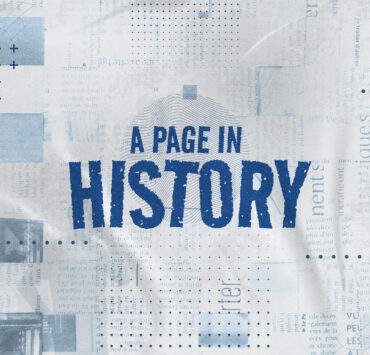Pillow talk

Decades before Art Basel colonized the art fair, there was the Foire Internationale d’Art Contemporain, FIAC for short, which took place in the autumn at the Grand Palais in Paris. I recall walking into the cavernous hall sometime in the mid-1980s, feeling overwhelmed and out of my depth.
As an art history student, I knew my Puvis de Chavannes and my Odilon Redons; I could identify the Berthe Morisots from the Mary Cassats; I was familiar with Turner and Constable, Matisse and Picasso, Cezanne, Van Gogh, and Gauguin.
But contemporary art was still largely foreign territory to me.
The editor
I stopped in front of a booth with the paintings of an artist named Leonardo Cremonini, drawn by the soft ice cream tones of his seaside scenes. Yet there was something about his art that was unsettling. A tall, bearded man stood beside me and asked me what I thought. I remember saying something like: It’s Balthus meets David Hockney, which he seemed to find quite astute.
He turned out to be the editor of a highly regarded London-based art journal, and of course, he knew David Hockney. And Francis Bacon. And Frank Auerbach. We struck up a conversation, went on to have a drink, and exchanged numbers. He asked me to dinner a few days later, suggesting we meet at his apartment before going to a brasserie in the quartier famous for its escalope de foie gras in a port sauce. Anything for foie gras, I thought…
I was to discover shortly that Mr. Editor had his own arsenal of seduction that involved poetry, notwithstanding the fact that he was, by his own admission, in a “complicated” relationship with another well-known art historian/journalist.
Nevertheless, he insisted on sitting me on his lap and reciting W.B. Yeats to me. His bid at seduction might have succeeded if he had read my favorite Yeats poem from the volume of poetry he held in his hands:
“Dance there upon the shore;
What need have you to care
For wind or water’s roar?”
His pick, “Leda and the Swan,” made his intentions disconcertingly evident:
“A sudden blow: the great wings beating still
Above the staggering girl, her thighs caressed
By the dark webs, her nape caught in his bill,
He holds her helpless breast upon his breast.”
“Did you ever think,” he says smugly after he put the book down, “that you would be here, sitting on a much older man’s knees, listening to Yeats?”
Talk about unsubtle. Dude read out to me an allegory of a rape! It was not the literary aphrodisiac he had obviously hoped it would be, and I would not be seduced. He wasn’t my type, to begin with. But the foie gras dinner was quite divine.
The man-child
Pablo Neruda proved to be far more irresistible years later when an ex-boyfriend and I would take turns reading to each other in bed snippets from “The Book of Questions” in between our amorous exertions. In Spanish, at that.
Neruda had written a collection of poems consisting of clusters of bite-sized but enigmatic verses that asked a question, playful yet profound, fusing a kind of riddle-me-this childlike curiosity with philosophical acuity. What color is the scent / of the blue weeping of violets? Or, Yesterday, yesterday I asked my eyes / when will we see each other again? Or, Is there anything sadder / than a train standing in the rain?
Alas, while poetry may have inflamed our passions, it couldn’t save our relationship. Even the most evocative of Neruda’s verses were no match for a man-child’s staggering immaturity.
The musician
Much more mature was a gifted flutist I had dated when I was living in Paris—praised by Jean-Pierre Rampal, no less—who would take me to the most wonderful concerts and operas and even to a music studio where he once composed a song for me. I was, unfortunately, the immature one in this scenario.
Besotted as he seemed to be with me, I was sadly not attracted to him in the same way, but I was more than happy to be wined, dined, and chauffeured around Paris, for he had a vintage sports car. And a stunning top-floor apartment in the Marais.
I finally got the irrevocable ick when I visited said apartment, absent-mindedly leafed through a coffee table book while he was in the kitchen preparing drinks, and chanced upon a dedication he had penned to his ex-girlfriend of many years. The exact words escape me now, but even in French, it was too saccharine, something about “living our love and our passion in all their naked intensity for all tomorrows to come.”
I bolted, I am ashamed to admit.
Recently, I thought to look him up, and was not exactly surprised to discover that he has had a stellar career with some of the most respected orchestras around the world. And he still has hair. Clearly, he’s winning at life.
But so am I. Besides, he’s not the one who got away.

















